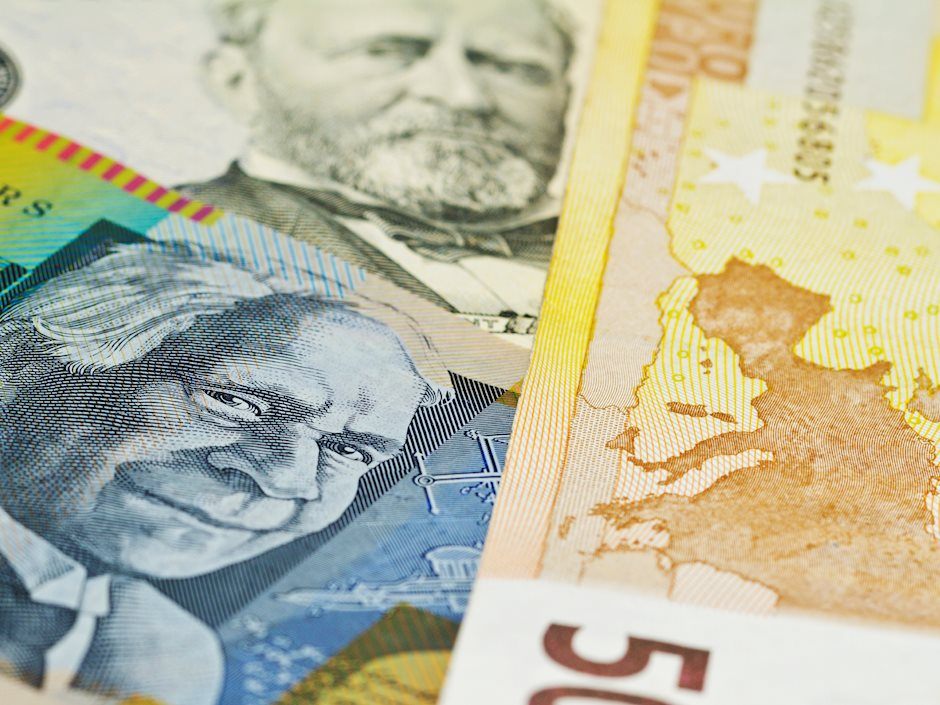EUR/AUD consolidates near 1.6300 despite soft Aussie Employment data
- EUR/AUD trades sideways around 1.6300 even though the Australian job demand remained slower-than-forecast in October.
- RBA Bullock supports maintaining a restrictive stance until inflation gets under control.
- Trump’s policies are expected to keep the Eurozone economy on the backfoot for a longer term.

The EUR/AUD pair trades in a tight range near the key resistance of 1.6300 in Thursday’s North American session. The cross struggles for the direction even though the Australian Employment data for October came in weaker than expected.
The Australian labor market data showed that the economy added 15.9K new workers, lower than estimates of 25K and from 61.3K in September. The Unemployment Rate came in at 4.1%, in line with expectations and the prior release.
The impact of the weak employment data is expected to nominal on market speculation for the Reserve Bank of Australia's (RBA) interest rate outlook as the bank is more focused on taming price pressures with confidence that the job market remains steady. Also, RBA Governor Michelle Bullock said on Wednesday that interest rates are needed to remain at their current levels until price pressures get under control.
According to economists at Capital Economics, the RBA is expected to consider pivoting to interest rate cuts after the first quarter of 2025.
Meanwhile, Euro’s (EUR) broad underperformance is expected to remain intact as Trump’s protectionist policies are expected to impact the Eurozone’s export sector significantly, being a leading trading partner of the United States (US). Apart from that, market participants are anticipating that the European Central Bank (ECB) will fasten its policy-easing cycle amid fears of price pressures remaining below the bank’s target of 2%.
In the European session, ECB Vice President Luis de Guindos said, “All indicators on core inflation are pointing in the right direction.” He added, “If inflation converges towards our goal, then monetary policy will respond accordingly.”
Euro FAQs
The Euro is the currency for the 19 European Union countries that belong to the Eurozone. It is the second most heavily traded currency in the world behind the US Dollar. In 2022, it accounted for 31% of all foreign exchange transactions, with an average daily turnover of over $2.2 trillion a day. EUR/USD is the most heavily traded currency pair in the world, accounting for an estimated 30% off all transactions, followed by EUR/JPY (4%), EUR/GBP (3%) and EUR/AUD (2%).
The European Central Bank (ECB) in Frankfurt, Germany, is the reserve bank for the Eurozone. The ECB sets interest rates and manages monetary policy. The ECB’s primary mandate is to maintain price stability, which means either controlling inflation or stimulating growth. Its primary tool is the raising or lowering of interest rates. Relatively high interest rates – or the expectation of higher rates – will usually benefit the Euro and vice versa. The ECB Governing Council makes monetary policy decisions at meetings held eight times a year. Decisions are made by heads of the Eurozone national banks and six permanent members, including the President of the ECB, Christine Lagarde.
Eurozone inflation data, measured by the Harmonized Index of Consumer Prices (HICP), is an important econometric for the Euro. If inflation rises more than expected, especially if above the ECB’s 2% target, it obliges the ECB to raise interest rates to bring it back under control. Relatively high interest rates compared to its counterparts will usually benefit the Euro, as it makes the region more attractive as a place for global investors to park their money.
Data releases gauge the health of the economy and can impact on the Euro. Indicators such as GDP, Manufacturing and Services PMIs, employment, and consumer sentiment surveys can all influence the direction of the single currency. A strong economy is good for the Euro. Not only does it attract more foreign investment but it may encourage the ECB to put up interest rates, which will directly strengthen the Euro. Otherwise, if economic data is weak, the Euro is likely to fall. Economic data for the four largest economies in the euro area (Germany, France, Italy and Spain) are especially significant, as they account for 75% of the Eurozone’s economy.
Another significant data release for the Euro is the Trade Balance. This indicator measures the difference between what a country earns from its exports and what it spends on imports over a given period. If a country produces highly sought after exports then its currency will gain in value purely from the extra demand created from foreign buyers seeking to purchase these goods. Therefore, a positive net Trade Balance strengthens a currency and vice versa for a negative balance.
Author

Sagar Dua
FXStreet
Sagar Dua is associated with the financial markets from his college days. Along with pursuing post-graduation in Commerce in 2014, he started his markets training with chart analysis.

















